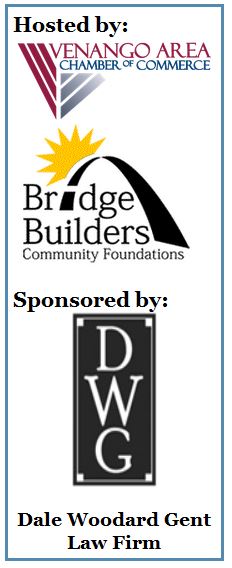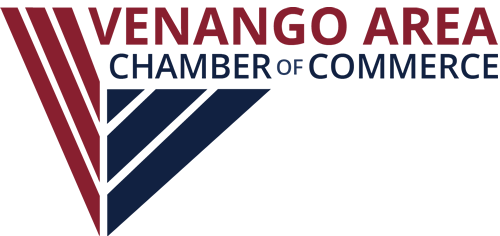FLSA Overtime Exemptions Final Ruling: Now What?
THE FIRST SESSION IS FULL
Second session:
Wednesday, September 28
12PM
Joy Global, Franklin
Online registration at bottom of page
 SPONSORED BY: DALE WOODARD GENT LAW FIRM
SPONSORED BY: DALE WOODARD GENT LAW FIRM
The Venango Area Chamber of Commerce and Bridge Builders Community Foundations are partnering to host a lunch seminar to help business and nonprofit leaders better understand and prepare these recent updates to the Fair Labor Standards Act overtime regulations. Frank Gill of Gill Consulting, an experienced consultant in these matters, will have a presentation and a time for Q&A from seminar participants.
What is the Fair Labor Standards Act (FLSA)?
The FLSA is a federal law which establishes minimum wage, overtime pay eligibility, record keeping, and child labor standards affecting full-time and part-time workers in the private sector and in federal, state, and local governments. The Act and in particular the “overtime rule” is enforced by the Wage and Hour Division of the Department of Labor. Provisions of the Act allow for specific “exemptions” from the overtime rule, provided the exempt worker meets certain requirements or tests. One of those tests is the salary level or threshold paid by the employer.
In May, the U.S. Department of Labor updated overtime regulations which will extend to more than 4 million workers. The new rules may affect the way local businesses pay their employees. Businesses with salary exempt employees, employees who do not currently receive overtime pay because of their status as a salaried employee, may need to adjust the way they pay these employees. Businesses must be compliant by December 1, 2016.
What is changing?
Effective December 1, 2016 the “rule change” goes into effect raising the salary threshold for exempt workers as follows:
- The salary level increases from $455/week or $23,660/year to $913/week or $47,476/year, and
- The salary level will continue to increase every three years thereafter
How does this affect my organization?
Exempt employees who are paid less than $47,476 annually may be eligible for overtime pay for hours worked over 40 in a workweek.
This could mean a big hit to payroll, a financial burden to the organization and a cultural change in the workforce.
What to do first?
Join Business Consultant Frank Gill as he discusses what employers need to know about the final rule on Fair Labor Standards Act (FLSA) overtime exemptions released by the Department of Labor (DOL). Frank Gill of Gill Consulting, an experienced consultant in these matters, will have a presentation and a time for Q&A from seminar participants.
Topics include:
- When the Final Rule goes into effect, and who will be affected;
- Updated overtime exemption thresholds for Executive, Administrative, Professional, and Higher Compensated Employees;
- Use of non-discretionary bonuses and incentive payments towards the threshold for Executive, Administrative, and Professional employees;
- What the Final Rule has NOT changed; and
- Best practices and tips for implementation.
Please RSVP to the Venango Area Chamber of Commerce by September 21st, 2016 at 814-676-8521 or use the form below.
We want to make a special thank you to Dale Woodard Gent Law Firm of Franklin, Pennsylvania for sponsoring this event.
[gravityform id=”17″ title=”true” description=”true”]

Common questions among nonprofit communities:
How would a nonprofit figure hours and pay for an employee attending staff training when the agency pays for accommodations, meals, and travel?
How is leave treated in a 40 hour work week in reference to overtime?
Suggestions for figuring grant budgets in reference to 40 hour workweek and overtime?
Is there a minimum wage requirement for salaried nonexempt?
Can an agency extend workday schedules to compensate for extended holiday time off in the same week?
Can you give examples of comp time for salaried non-exempt personnel?
Explain –
if nonprofits who are under a certain income threshold – will this apply?
Non-profits who have memberships and/or charge a fee for a service or have retail they are sell and they are using staff to sell – they will be the ones most affected by this act- Correct?
We had signed up for the Sept. 21st event in Oil City and we now have a conflict. Is it possible to instead sign up for the Sept. 28th class at Joy Global?